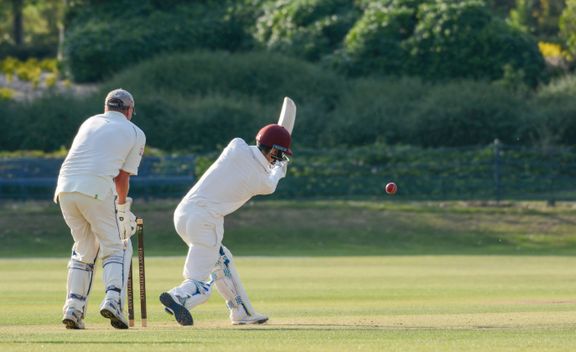
What Happened During the UK Parliamentary Debate on ILR Qualifying Period Extensions?
25/09/2025

On Monday 8th September 2025, the UK’s Petitions Committee met to debate proposed changes to the UK’s Indefinite Leave to Remain (ILR) rules, which would double the ILR qualifying period from 5 years to 10 years.
The 3-hour debate did not result in any direct policy changes, but the points and concerns raised are worth understanding for anyone currently on a UK visa or hoping to apply for ILR in the future. We’ve reviewed the full debate to explain what was discussed and what it could mean for UK Settlement and British Citizenship rules in the coming months.
What was the focus of September 2025’s ILR Parliament Debate?
This debate focused on two UK e-petitions, which both received over 100,000 signatures. These were “Keep the 5-Year ILR pathway for existing Skilled Worker visa holders” (e-petition 727360) and “Keep 5-year ILR terms to Hong Kong British National (Overseas) visas” (e-petition 727356).
Both e-petitions were created in response to the UK government’s May 2025 White Paper, which included several suggestions for stricter immigration rules. One of the key suggestions made in this White Paper was to increase the typical qualifying period for ILR from 5 years to 10 years, with some opportunities to reduce this qualifying period which have yet to be formalised.
As shown by their titles, both of these e-petitions suggested that the existing 5-year rules should still apply for Skilled Workers and for holders of Hong Kong BN(O) visas. The debate focused on these two suggestions.
What was discussed during the September 2025 ILR Parliament Debate?
We’ve condensed the debate down to the key points raised, which include the following:
How will the “earned settlement” process work?
Several MPs raised the point that it’s still unclear what the process of shortening your ILR qualifying period through a points-based earning system looks like. This was often referred to as the “earned settlement” model.
An earned settlement model was first proposed in the May 2025 White Paper, but since then there have been no new announcements explaining how points might be earned or how this would work in practice. At the moment, the only information we have is that points will be based on contributions to “UK economy and society”. A couple of MPs called for more clarity on this process from the government.

Confirmation of current exemptions
During the debate, MPs referenced the proposed exemptions already announced by the government, which can be found on the House of Commons library. At the moment, 3 main exemption categories won’t be impacted by the proposed Settlement qualifying period extension:
- Partners of British citizens
- Victims of domestic abuse
- People with post-Brexit residence rights under the EU Settlement Scheme
The government has confirmed that anyone within these three categories will still have access to a 5-year route to Settlement, even after changes to the system come into effect.
Will rules be applied retroactively?
An important issue raised by a couple of MPs during the debate concerned whether or not these proposed Settlement rule changes will apply retroactively for people who have already applied or arrived in the UK under the current 5-year rules.
There’s been no formal announcement yet as to whether rules will only apply to new entries or if they will be applied retroactively across the whole immigration system. One MP did however state they’ve heard reports that rules may apply retroactively, and expressed concerns that this could significantly impact people already in the UK.
Does the Settlement extension undermine the UK’s commitment to a safe, accessible route for Hong Kongers?
Since one of the two e-petitions focused specifically on the rights of Hong Kongers in the UK, this point commanded a lot of debate. During their speeches, many MPs cited fears that applying these proposed new Settlement rules to people on Hong Kong BN(O) visas (also known as the British National (Overseas) visa) undermines the UK’s commitment to an accessible and distinct route to the country for Hong Kong citizens.
Several MPs also clarified that the Hong Kong route was always designed as a “special case”, and that general immigration rules shouldn’t automatically apply to such a distinct route. They also raised fears that doing so would break the social contract made with Hong Kongers who have moved to the UK since 2021.
What is the result of September 2025’s ILR Parliament Debate?
This debate has not resulted in any immediate rule changes. Following the debate, the UK government must consider all of the points raised and decide whether any concerns will be addressed.
We therefore can’t state definitively what will change as a result of the debate. When reading the transcript, we did notice the topic of exemptions for Hong Kong nationals became the main focal point for most speeches, which could make it possible that they are included on an exemption list in the future. But right now, it’s impossible to say for certain.
Skilled Workers were mentioned less than Hong Kong nationals in the debate overall, but there were still calls from many MPs for their contributions to be recognised and for an exemption to be considered. It remains to be seen whether this will happen.
There is still no overall timetable for when White Paper proposals like the Settlement qualifying period extension could come into force. We recommend keeping an eye on our website blog page or signing up for our newsletter using the contact form below. We will work to keep you informed on any changes through these channels as they’re announced.
If you’d like to review the full debate for yourself, you can do so on the UK Parliament’s website here.
You can also find more information about the proposed Settlement rule changes on this House of Commons Library page.
Related Posts
UK Earned Settlement Plans: Just Not Cricket!

We explain everything you need to know about current UK Earned Settlement plans, and how you can have...
It is still possible to sponsor a Dental Therapist / Hygienist after 22 July on a Skilled Worker visa

It is still possible to sponsor a Dental Therapist / Hygienist (SOC Code 3213) after 22 July...
How to Avoid Overpaying For Your UK Skilled Worker Visa

Avoid overpaying for your UK Skilled Worker visa application by checking the dates on your Certificate of Sponsorship
What does the 2025 White Paper mean for the Future of UK Immigration?

Find out everything that the UK government has proposed for the future of immigration in their May 2025...
Sponsor Licence Suspended: What Can I Do?

Find out how to challenge a Sponsor Licence suspension, and why it’s so important to act quickly if...
Can I Study On a UK Skilled Worker Visa?

Find out the rules for studying on a UK skilled worker visa, including any restrictions you need to...







